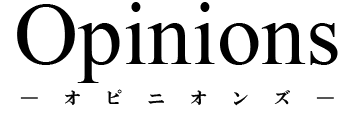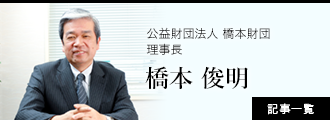
- 記事一覧
- ゲストライター記事一覧
- 女子大学と男女の社会的役割について Woman's university and social expectations of women and men
女子大学と男女の社会的役割について Woman's university and social expectations of women and men

※日本語訳は英文の後に掲載しています。
In June 2019 President of Turkey Erdogan visited Japan to attend the G20 Summit in Japan He also visited a women's university – Mukogawa Women's University. He said that women's universities should also be opened in Turkey (a). Then in July 2019, examining the women’s universities in Japan, Turkey just announced the decision to establish women's universities that accept only female students (b).
I would like to evaluate women's universities in Japan in terms of gender inequality and I will share what should be prioritized for progress in gender equality.
Gender is a concept used to express the values, meanings, significance, and roles attributed to biological sexes. In other words, being a woman and a man is attributed to different meanings in the society we live in. The expectations of society from men and women also vary according to these meanings. Differing expectations about gender in society causes women and men to be treated differently and results in the differentiation of gender positions in society. For example, social expectations are that women should not study, should not work, or stop working after marriage and dedicate themselves to raising their children and taking care of household tasks, even if they work. In other words, social expectations such as childcare borne by women are related to traditional gender roles.
In the 2020 World Economic Forum’s Gender Gap Index (1), Japan ranked 121st among 153 countries. (Japan ranked 110th in the 2018 report among 149 countries. [2]) Japan is among the developed countries, considering the high level of general welfare and the investments it has made in science and technology, and the advances it has made due to these investments. However, when the social structure of Japan is examined, it can be said that it is behind in terms of gender equality compared to other countries with similar development levels.
Japan emphasized the importance of the education of women during the Meiji period and established universities that provide education only for women. However, even though some of them have become coeducational, these women's universities still exist. According to the 2019 data of the Japanese Ministry of Education, Culture, Sports, Science and Technology (3), the number of universities providing education for 4 years or more in Japan is 786 in total. Among all higher education institutions, the number of institutions (universities and others) where only women are educated is 78 as of 2019, of which only 2 are state universities and 2 are universities financed by local/regional administrations, and the rest are private (4).

When the educational programs of women’s universities are examined, it is realized that their curricula tend to differ from universities with coeducation. Although there are women’s universities that provide education in disciplines such as mathematics, biology, and physics, women's universities mostly focus on areas such as nutrition and dietetics, child education, home economics, and social services. In addition, to be able to study at women's universities, students are required to apply with the gender information they are registered with, and applications of students registered as male are not accepted. For example, the application of a student wishing to study in the nutrition department at a women's university was rejected on the grounds that he was a male.
The student in question filed a lawsuit against the university due to "gender discrimination", but could not get any results on the grounds that "universities have the right to decide the entrance conditions themselves". The student's lawyer emphasized that when women's universities were first established, they aimed to provide opportunities for disadvantaged women, but there is no need for such a distinction today. Although the aforementioned university claims to have the mission of educating the next generation of female leaders, it is thought-provoking that the rector and most of the lecturers of the university are men (5). According to another report, in 2018, it was revealed that a medical school in Tokyo had prevented female candidates from entering by deliberately lowering the scores of female candidates since 2006 (6).
It can be said that all these structures and practices summarize the Japanese society's perspective on women. However, over the years, female universities in Japan have turned into coeducational higher education institutions by accepting male students, and some are in the transition to coeducation. Therefore, it should be underlined that the number of these universities is decreasing. However, Kazuo Yamaguchi, a professor of sociology at the University of Chicago, stated that Japan has not made progress in terms of gender equality compared to the rest of the world. Yamaguchi stated that although the government encourages women's participation in the economic workforce, women are often employed in "non-regular" jobs and paid lower salaries. Yamaguchi also underlined that the career tracks influenced by traditional roles and, consequently, the ratio of women in higher-status jobs such as physicians or university scholars is the lowest among all OECD countries. Careers pursued by women and men differ due to Japan's traditional gender roles. In addition, the unequal distribution of household tasks in the family and the fact that childcare is often seen as the responsibility of women leaves women between starting a family and a career. Factors such as the incompatibility of long working hours with traditional family roles and the less recruitment of women to higher positions also reinforce the existing gender inequality (7).
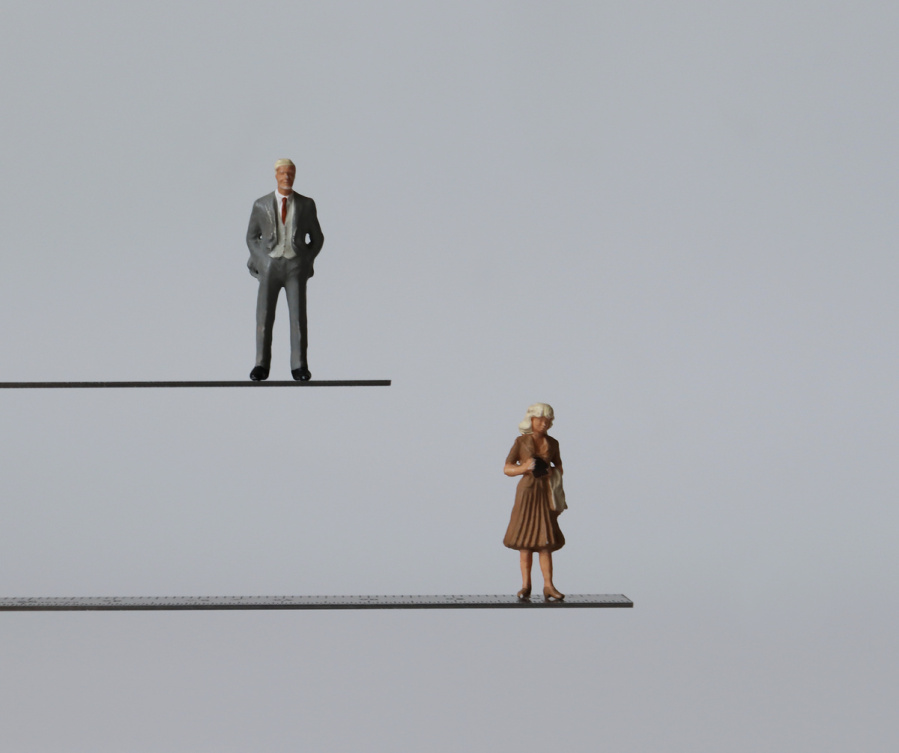
The purpose to establish universities where only women can attend is understandable when considering the sexist structure of the historical period in which they were established. However, in today's conditions, with the developments in human rights and scientific-technological advances, it is against human rights to have different social expectations from women and men and to treat people differently on the basis of gender. Universities, where only women can attend, do not help to reduce gender inequality, but rather reinforce existing gender roles. Social expectations about women staying at home and men going out and bearing all economic obligations will create obstacles to social and economic progress in the long run.
Turkey’s priority should not be establishing women’s universities. The idea that Turkey needs women’s universities to make scientific progress is not realistic and will do nothing but reinforce the unequal structure of society. What Turkey needs in the short-term is to improve compulsory education, provide equal opportunities to children, and encourage them to continue their education. In the medium- and long-term, importance should be given to vocational education and the educational quality of vocational high schools and colleges should be increased. They should be encouraged to attend vocational high schools and colleges in order to specialize in certain areas. Thus, a workforce with high professional skills will be created. Also, by investing in higher education institutions, the number of educated and qualified people should be increased, and brain drain should be prevented by investing in science, technology, engineering, and mathematics fields.
What Japan needs is to arrange the system in a way to balance the work-life, to ensure that gender roles move away from traditionalism, and to provide flexibility to people regardless of their gender in terms of their choices. Considering that the population of Japan is decreasing which leads to a lack of workforce, it is important for the future of the country to bring women into the workforce. In addition, ensuring that the household tasks are fairly divided and that both parents share the responsibility of the childcare will prevent women from being torn between starting a family and pursuing a career.
2019年6月、トルコのエルドアン大統領は日本で開催されたG20サミットに出席するために来日しました。 彼はまた、女子大学-武庫川女子大学を訪問し、トルコにも女子大学が開設されるべきだと述べました(a)。そして2019年7月、日本の女子大学を調査したトルコは、女子学生のみを受け入れる女子大学を設立する決定を発表しました (b)。
日本の女子大学を男女共同参画の観点から評価し、男女平等が進むために何を優先すべきかを共有したいと思います。
ジェンダーとは、生物学的性別に帰属する価値観、意味、意義、役割を表現するための概念です。言い換えれば、女性であることと男性であることは、私たちが暮らす社会の中で異なる意味を持っています。また、社会が男性と女性に期待することも異なってきます。社会におけるジェンダーへの期待が異なることで、女性と男性の扱いが異なり、結果的に社会におけるジェンダーの立場が異なることになります。例えば、社会的な期待としては、女性は勉強をしてはいけない、働いてはいけない、結婚したら仕事をやめて、働いていても子育てや家事に専念しなければならない、というようなものがあります。つまり、女性が負担する育児などの社会的期待は、伝統的なジェンダーの役割と関係しているのです。
2020年世界経済フォーラムの男女格差指数(1)では、日本は153カ国中121位(2018年報告では149カ国中110位)となっています。一般的な福祉水準の高さや科学技術への投資、それによる進歩を考えれば、日本は先進国の一つであると位置づけられます。しかし、日本の社会構造を見てみると、同程度の水準の他国と比較して、男女平等の面で遅れていると言えるでしょう。
日本は明治時代以降、女性の教育を重視し、女性だけの教育を行う大学を設置しました。しかし、一部では共学化したとはいえ、こうした女子大学は今も存在しています。文部科学省の2019年のデータ(3)によると、日本国内で 4 年以上の教育を行っている大学は合計で 786 校です。2019年時点で、すべての高等教育機関のうち、女性のみを教育をしている機関(大学等)は78校で、そのうち国立大学と地方・地方自治体が出資する大学は2校のみで、残りは私立(4)となっています。
女子大学の教育課程を見てみると、男女共学の大学とはカリキュラムが異なる傾向にあることがわかります。数学、生物学、物理学などの分野の教育を行う女子大学もありますが、多くが栄養学、食育学、児童教育、家庭科、社会福祉などの分野に重点を置いています。また、女子大学で学ぶためには、登録されている性別の情報で出願する必要があり、男性として登録されている学生の出願は認められていません。例えば、女子大学の栄養学科を希望する学生の出願は、男性であることを理由に却下されました。
この学生は「男女差別」を理由に大学を提訴しましたが、「大学には入学条件を自分たちで決める権利がある」との理由で結果を出せませんでした。学生の弁護士は「女子大学が設立された当初は、恵まれない女性に機会を提供することを目指していたが、現在はそのような区別は必要ない」と強調しました。前述の大学は次世代の女性リーダーを教育する使命を持っていると主張していましたが、その大学の学長や講師のほとんどが男性であることは示唆に富みます。
また別の報道によると、2018年には、都内の医学部が2006年から女性受験者の点数を意図的に下げて入学を阻止していたことが明らかになりました(6)。
これらの構造や慣行は、いずれも日本社会の女性観を総括しているといえます。ここ何年も、日本の女子大学は男子学生を受け入れることで男女共学の高等教育機関になり、一部は男女共学に移行しつつあります。したがって、女子大学の数が減少していることは強調しておく必要があります。しかし、シカゴ大学社会学教授の山口一男氏は、日本は世界に比べて男女共同参画が進んでいないと述べています。政府は女性の経済労働力への参加を奨励しているが、女性は「非正規」の仕事に就くことが多く、給料も低いのです。山口氏はまた、総合職は伝統的な役割の影響を受けており、結果的に、医師や大学の学者など、より高い地位にある仕事に就く女性の割合がOECD加盟国の中で最も低いことを強調しました。日本の伝統的な男女の役割の影響で、女性と男性の求められるキャリアは異なっています。また、家庭内での家事分担が不平等であることや、育児が女性の責任と思われがちであることから、女性は家庭を築くこととキャリアの間に挟まれてしまうのです。長時間労働が伝統的な家族の役割と相容れないことや、より高い地位への女性の登用が少ないことも、既存のジェンダー不平等を強めています(7)。
女性だけが通うことのできる大学を設立する目的は、設立された時代の性差別的構造を考えれば理解できます。しかし、人権や科学技術の進歩が進む今日の状況では、女性と男性で社会的役割が異なるとし、ジェンダーに基づいて異なる扱いをすることは人権に反しています。女性だけが通うことができる大学は、ジェンダーの不平等を減らすのに役立つのではなく、むしろ既存のジェンダーの役割を強化するものです。女性は家にいて、男性は外に出て経済的な義務を負うという社会的な期待は、長期的には社会的・経済的進歩の障害となります。
トルコが優先すべきは女子大学の設立ではありません。トルコが科学の進歩を遂げるために女性の大学を必要としているという考えは現実的ではなく、社会の不平等な構造を強化するだけです。 トルコが短期的に必要としているのは、義務教育を充実させ、子供たちに平等な機会を提供し、教育を継続するよう促すことです。中長期的には、職業教育を重視し、専門学校や大学の教育の質を高める必要があり、また、特定の分野に特化するために、職業高校や大学に通うように奨励されるべきです。これにより、高度な専門スキルを備えた労働力が生まれます。また、高等教育機関に投資することで、教育を受けた有資格者の数を増やし、科学、技術、工学、数学の分野に投資することで頭脳流出を防ぐ必要があります。
日本に必要なのは、ワーク・ライフ・バランスを整え、伝統的な性別の役割から脱却し、性別に関係なく柔軟に選択できるようにシステムを整えることです。日本の人口が減少して労働力不足に陥っていることを考えると、女性を労働力として取り込んでいくことが国の将来のために重要となります。また、家事を公平に分担し、育児を両親が分担することで、女性が家庭を取るかキャリアを取るかで迷うのを防ぐことができるのです。
参考
(a)https://tr.sputniknews.com/asya/201906271039489173-mukogawa-kadin-universitesinden-erdogana-fahri-doktora/
(b)https://www.aa.com.tr/tr/egitim/turkiyede-kadin-universiteleri-kurulacak/1526776
(1)http://www3.weforum.org/docs/WEF_GGGR_2020.pdf
(2)http://www3.weforum.org/docs/WEF_GGGR_2018.pdf
(3)https://www.mext.go.jp/a_menu/koutou/kouritsu/index.htm
(4)https://www.gakkou.net/daigaku/src/?srcmode=sxd&sxd=1
(5)https://www.tnp.sg/news/japan-man-sues-all-womens-university-gender-discrimination
(6)https://www.theguardian.com/world/2018/aug/08/tokyo-medical-school-admits-changing-results-to-exclude-women
(7)https://www.imf.org/external/pubs/ft/fandd/2019/03/gender-equality-in-japan-yamaguchi.htm

トルコ出身。中東工科大学(心理学科)という国立の技術系大学を卒業後、同大学修士課程へ入学(社会心理学科)、テラー・マネジメント理論の文化的世界観・死の顕現化仮説に関する研究を行う。心理学科ではリサーチアシスタントも務める。アンカラ大学修士課程卒業後、文部科学省奨学金で岡山大学社会文化科学研究科(社会心理学科)へ。博士課程に進み、在留トルコ人留学生のアカデミックカルチャーショック・異文化適応に関する研究を行う。
2020年4月~橋本財団ソシエタス総合研究所の研究員として勤務。
トルコ出身。中東工科大学(心理学科)という国立の技術系大学を卒業後、同大学修士課程へ入学(社会心理学科)、テラー・マネジメント理論の文化的世界観・死の顕現化仮説に関する研究を行う。心理学科ではリサーチアシスタントも務める。アンカラ大学修士課程卒業後、文部科学省奨学金で岡山大学社会文化科学研究科(社会心理学科)へ。博士課程に進み、在留トルコ人留学生のアカデミックカルチャーショック・異文化適応に関する研究を行う。
2020年4月~橋本財団ソシエタス総合研究所の研究員として勤務。
Recently Popular最近よく読まれている記事
-

食べていても痩せる 高齢者終末期のカヘキシア(悪液質)
食べていても痩せる。活発に運動を続けている人なら不思議に思わないが、介護度の高い高齢者にそのようなことが果たして起こるのだろうか。起こるのであれば、それはカヘキシアという病態であれば説明できる。 カヘキシア(悪液質)カヘキシアとは、食欲不振・体重減少・全身衰弱・倦怠感などを呈し、生命予後やQOL(qualit… -

終末期の自然な経過を見極めるとは
長期に渡り胃ろうからの栄養を続けていると、注入した物が食道へ逆流したり、唾液や痰の貯留が増えたりして、吸引を繰り返すことになるが、結局のところ、頻回の吸引も間に合わず、心肺停止状態で発見されることが多い。これでは看取りとは言えない。ここに至るまでの言葉を語れない人の苦しみ。このような事態を避ける智慧… -

自閉症スペクトラムと呼ばれているような障害は、実は障害ではない。生物としての人類のバリエーション(変異)の一つである。
自閉症スペクトラムと呼ばれているような障害は、実は障害ではない。生物としての人類のバリエーション(変異)の一つである。本来は人類の、生息環境に対する適応の一つのあり方だというのが、ニューロダイバーシテイ(脳多様性)という考え方に他ならない(詳しくは正高信男著『ニューロダイバーシテイと発達障害』(北大… -

社会保障分野での普遍主義と選別主義について
介護保険や医療保険では、貧富にかかわらず保険によって9割が給付(自己負担は1割)あるいは、7割が給付(自己負担は3割)される。この様な社会保障の方式は、「普遍主義」といわれている。「普遍主義」は、義務教育や、最近では高等学校の授業料にも適応されている(この場合も裕福な人も貧しい人も同様に無償である)。反… -

飲まず食わず(自発的飲食中止)という選択、VSEDをご存知ですか?
前回(Opinionsで9月24日配信記事)は有馬斉氏による安楽死の分類と、我が国の現状についてお伝えしました。また我が国においては、医師の致死的薬剤の処方による積極的安楽死は、法的に支持されていないということもお話ししました。諸外国では医師による致死的薬剤処方による安楽死が認められている国もありますが、もち… -

医療崩壊
ある日の外来。朝の9時から診察室に座りっぱなしでそろそろ3時間が経過。既に再診患だけではなく、その日の新患も回ってきます。で、そうした中に問題のおじさんがいました。「今、○○クリニックで薬をもらっていまして・・・」「30日分貰っているのですが、お腹が痛くなったので、診てもらいに来ました」「○○先生の紹介…
Writer ライター
-
 受賞作品Opinionsエッセイ
受賞作品OpinionsエッセイOpinionsエッセイの記事を見る
-
 ペンネーム東沖 和季
ペンネーム東沖 和季東沖 和季の記事を見る
-
 ニセコ在住下田 伸一
ニセコ在住下田 伸一下田 伸一の記事を見る
-
 ペンネーム 看護師宇梶 正
ペンネーム 看護師宇梶 正宇梶 正の記事を見る
-
 武蔵野大学大学院大谷 航介
武蔵野大学大学院大谷 航介大谷 航介の記事を見る
-
 一般社団法人村楽東 大史
一般社団法人村楽東 大史東 大史の記事を見る
-
 会社員池松 俊哉
会社員池松 俊哉池松 俊哉の記事を見る
-
 (公財)橋本財団研究助成 成果報告
(公財)橋本財団研究助成 成果報告研究助成 成果報告の記事を見る
-
 横浜市立大学小林 天音
横浜市立大学小林 天音小林 天音の記事を見る
-
 東京西徳洲会病院小児医療センター 小児神経科医師秋谷 進
東京西徳洲会病院小児医療センター 小児神経科医師秋谷 進秋谷 進の記事を見る
-
 公益財団法人地方自治総合研究所 常任研究員坂本 誠
公益財団法人地方自治総合研究所 常任研究員坂本 誠坂本 誠の記事を見る
-
 ペンネームAurora
ペンネームAuroraAuroraの記事を見る
-
 つむぐ株式会社 代表取締役竹村 仁量
つむぐ株式会社 代表取締役竹村 仁量竹村 仁量の記事を見る
-
 岡山大学学術研究院医歯薬学域長谷井 嬢
岡山大学学術研究院医歯薬学域長谷井 嬢長谷井 嬢の記事を見る
-
 ソシエタス総合研究所 研究員Karki Shyam Kumar (カルキ シャム クマル)
ソシエタス総合研究所 研究員Karki Shyam Kumar (カルキ シャム クマル)Karki Shyam Kumar (カルキ シャム クマル)の記事を見る
-
 NPO法人妊娠しぇるとSOS 理事長小林 智子
NPO法人妊娠しぇるとSOS 理事長小林 智子小林 智子の記事を見る
-
 書きたい人のためのwebマガジンOpinions編集部
書きたい人のためのwebマガジンOpinions編集部Opinions編集部の記事を見る
-
 介護福祉士渡口 将生
介護福祉士渡口 将生渡口 将生の記事を見る
-
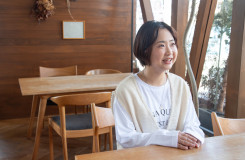 相談支援専門員・福祉ネイリストゆき
相談支援専門員・福祉ネイリストゆきゆきの記事を見る
-
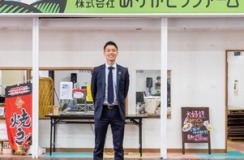 株式会社ありがとうファーム取締役副社長馬場 拓郎
株式会社ありがとうファーム取締役副社長馬場 拓郎馬場 拓郎の記事を見る
-
 ジャーナリスト ペンネームジョワキン
ジャーナリスト ペンネームジョワキンジョワキンの記事を見る
-
 ソシエタス総合研究所 研究員Andi Holik Ramdani(アンディ ホリック ラムダニ)
ソシエタス総合研究所 研究員Andi Holik Ramdani(アンディ ホリック ラムダニ)Andi Holik Ramdani(アンディ ホリック ラムダニ)の記事を見る
-
 ソシエタス総合研究所 研究員Waode Hanifah Istiqomah(ワオデ ハニファー イスティコマー)
ソシエタス総合研究所 研究員Waode Hanifah Istiqomah(ワオデ ハニファー イスティコマー)Waode Hanifah Istiqomah(ワオデ ハニファー イスティコマー)の記事を見る
-
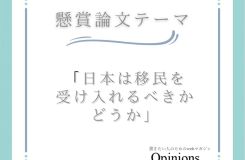 元芝園団地自治会岡﨑 広樹
元芝園団地自治会岡﨑 広樹岡﨑 広樹の記事を見る
-
 岡山外語学院留学生カーン エムディ マムン
岡山外語学院留学生カーン エムディ マムンカーン エムディ マムンの記事を見る
-
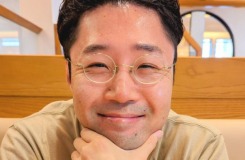 行政書士板垣 岳人
行政書士板垣 岳人板垣 岳人の記事を見る
-
 Crimson Education教育コンサルタント蘇 暁辰(Xiaochen Su)
Crimson Education教育コンサルタント蘇 暁辰(Xiaochen Su)蘇 暁辰(Xiaochen Su)の記事を見る
-
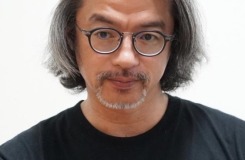 神戸大学准教授斉藤 善久
神戸大学准教授斉藤 善久斉藤 善久の記事を見る
-
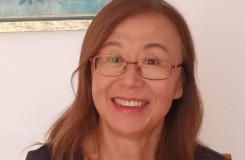 ドイツ在住阿部プッシェル 薫
ドイツ在住阿部プッシェル 薫阿部プッシェル 薫の記事を見る
-
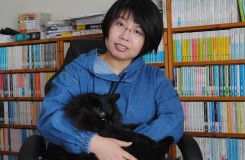 ライター/編集者黒部 麻子
ライター/編集者黒部 麻子黒部 麻子の記事を見る
-
 翻訳家田尻 潤子
翻訳家田尻 潤子田尻 潤子の記事を見る
-
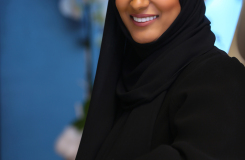 アブダビ環境庁長官 Environment Agency – Abu Dhabi (ead.gov.ae)シャイカ・サレム・アル・ダヘリ
アブダビ環境庁長官 Environment Agency – Abu Dhabi (ead.gov.ae)シャイカ・サレム・アル・ダヘリシャイカ・サレム・アル・ダヘリの記事を見る
-
 元整形外科医/農園主散木洞人
元整形外科医/農園主散木洞人散木洞人の記事を見る
-
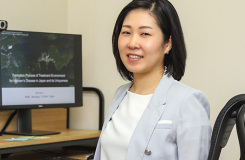 豊橋技術科学大学パク ミンジョン
豊橋技術科学大学パク ミンジョンパク ミンジョンの記事を見る
-
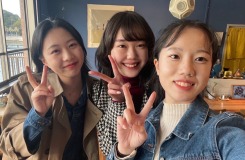 生理革命委員会澤田まりあ、山形萌花、山領珊南
生理革命委員会澤田まりあ、山形萌花、山領珊南澤田まりあ、山形萌花、山領珊南の記事を見る
-
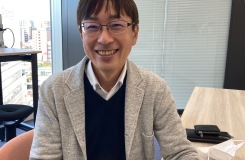 SOMPOケア株式会社藤田 定司
SOMPOケア株式会社藤田 定司藤田 定司の記事を見る
-
 おかやま山陽高等学校橘 里香サニヤ
おかやま山陽高等学校橘 里香サニヤ橘 里香サニヤの記事を見る
-
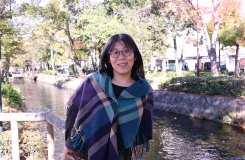 ソシエタス総合研究所 研究員坂入 悦子
ソシエタス総合研究所 研究員坂入 悦子坂入 悦子の記事を見る
-
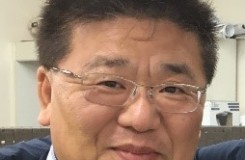 Hiro山下行政書士国際法務事務所 代表山下裕司
Hiro山下行政書士国際法務事務所 代表山下裕司山下裕司の記事を見る
-
 ソシエタス総合研究所 研究員Niklas Holzapfel ホルツ アッペル ニクラス
ソシエタス総合研究所 研究員Niklas Holzapfel ホルツ アッペル ニクラスNiklas Holzapfel ホルツ アッペル ニクラスの記事を見る
-
 サウンドエンジニアEmre・Ekici エムレ・エキジ
サウンドエンジニアEmre・Ekici エムレ・エキジEmre・Ekici エムレ・エキジの記事を見る
-
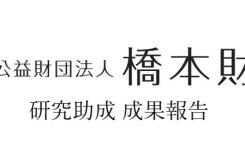 NPO法人岡山県国際団体協議会
NPO法人岡山県国際団体協議会岡山県国際団体協議会の記事を見る
-
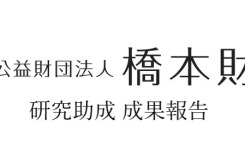 岡山大学 学術研究院 社会文化科学学域 教授東條 光彦
岡山大学 学術研究院 社会文化科学学域 教授東條 光彦東條 光彦の記事を見る
-
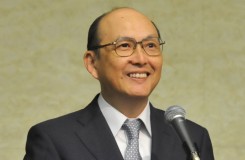 福岡大学 名誉教授田村 和夫
福岡大学 名誉教授田村 和夫田村 和夫の記事を見る
-
 ソシエタス総合研究所 研究員相川 真穂
ソシエタス総合研究所 研究員相川 真穂相川 真穂の記事を見る
-
 一般社団法人京都総合科学研究所 アドバイザー松村 道郎
一般社団法人京都総合科学研究所 アドバイザー松村 道郎松村 道郎の記事を見る
-
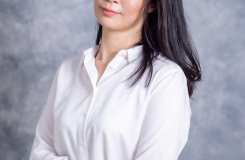 ワラム株式会社 代表取締役加藤 侑子
ワラム株式会社 代表取締役加藤 侑子加藤 侑子の記事を見る
-
 岡山市立操南中学校 教諭/NPO法人国際協力研究所・岡山代表理事竹島 潤
岡山市立操南中学校 教諭/NPO法人国際協力研究所・岡山代表理事竹島 潤竹島 潤の記事を見る
-
 新西横浜街の予防医療ケア研究室 保健師・看護師・元先端バイオ創薬ベンチャー取締役五十嵐 直敬
新西横浜街の予防医療ケア研究室 保健師・看護師・元先端バイオ創薬ベンチャー取締役五十嵐 直敬五十嵐 直敬の記事を見る
-
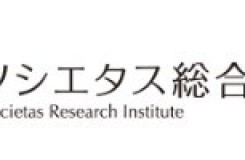 共著橋本俊明・秋吉湖音
共著橋本俊明・秋吉湖音橋本俊明・秋吉湖音の記事を見る
-
 ライター菊池 洋勝
ライター菊池 洋勝菊池 洋勝の記事を見る
-
 大東文化大学国際関係学部・特任教授 高崎経済大学経済学部・非常勤講師 目白大学経営学部経営学科&目白大学大学院経営学研究科 非常勤講師 長崎県佐世保市役所 経済活性化~産業振興に関するアドバイザー、博士(経済学)江崎 康弘
大東文化大学国際関係学部・特任教授 高崎経済大学経済学部・非常勤講師 目白大学経営学部経営学科&目白大学大学院経営学研究科 非常勤講師 長崎県佐世保市役所 経済活性化~産業振興に関するアドバイザー、博士(経済学)江崎 康弘江崎 康弘の記事を見る
-
 ソシエタス総合研究所 研究員秋吉 湖音
ソシエタス総合研究所 研究員秋吉 湖音秋吉 湖音の記事を見る
-
 JICA専門家足立 伸也
JICA専門家足立 伸也足立 伸也の記事を見る
-
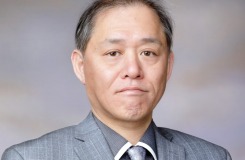 富士通株式会社 第三ファイナンス事業本部 シニアマネージャー安留 義孝
富士通株式会社 第三ファイナンス事業本部 シニアマネージャー安留 義孝安留 義孝の記事を見る
-
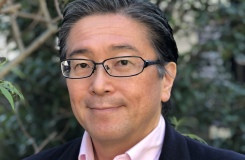 EDAS(イーダス)理事長田村 拓
EDAS(イーダス)理事長田村 拓田村 拓の記事を見る
-
 監督・プロデューサー湯浅 典子
監督・プロデューサー湯浅 典子湯浅 典子の記事を見る
-
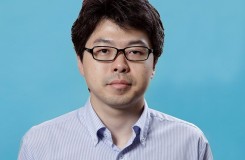 日本経済大学 准教授山下 誠矢
日本経済大学 准教授山下 誠矢山下 誠矢の記事を見る
-
 人と医療の研究室 代表池尻 達紀
人と医療の研究室 代表池尻 達紀池尻 達紀の記事を見る
-
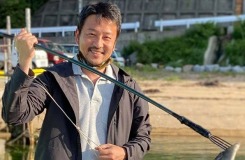 一般社団法人飛島学園 代表理事堂野 博之
一般社団法人飛島学園 代表理事堂野 博之堂野 博之の記事を見る
-
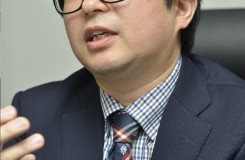 ニッセイ基礎研究所 生活研究部 主任研究員、ヘルスケアリサーチセンター・ジェロントロジー推進室兼任金 明中
ニッセイ基礎研究所 生活研究部 主任研究員、ヘルスケアリサーチセンター・ジェロントロジー推進室兼任金 明中金 明中の記事を見る
-
 医療法人財団足立病院 理事長、社会福祉法人あだち福祉会 理事長畑山 博
医療法人財団足立病院 理事長、社会福祉法人あだち福祉会 理事長畑山 博畑山 博の記事を見る
-
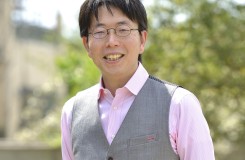 教育研究家、合同会社ライフ&ワーク代表妹尾 昌俊
教育研究家、合同会社ライフ&ワーク代表妹尾 昌俊妹尾 昌俊の記事を見る
-
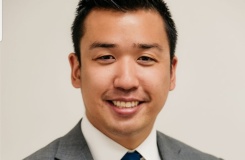 ハーバード大学ベス・イスラエル・ディーコネス・メディカルセンター、高度消化管/最小侵襲外科フェロー中元 啓太郎
ハーバード大学ベス・イスラエル・ディーコネス・メディカルセンター、高度消化管/最小侵襲外科フェロー中元 啓太郎中元 啓太郎の記事を見る
-
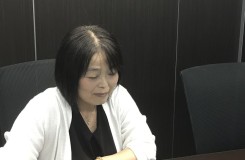 ソシエタス総合研究所 主任研究員井上 登紀子
ソシエタス総合研究所 主任研究員井上 登紀子井上 登紀子の記事を見る
-
 ソシエタス総合研究所 研究員松田 郁乃
ソシエタス総合研究所 研究員松田 郁乃松田 郁乃の記事を見る
-
 ソシエタス総合研究所 研究員アイシェ・ウルグン・ソゼン Ayse Ilgin Sozen
ソシエタス総合研究所 研究員アイシェ・ウルグン・ソゼン Ayse Ilgin Sozenアイシェ・ウルグン・ソゼン Ayse Ilgin Sozenの記事を見る
-
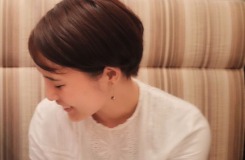 NPO法人岡山市子どもセンター 事務局久川 春菜
NPO法人岡山市子どもセンター 事務局久川 春菜久川 春菜の記事を見る
-
 ユースワーカー(Youth Woker)森分 志学
ユースワーカー(Youth Woker)森分 志学森分 志学の記事を見る
-
 ペンネーム三村 喜久雄
ペンネーム三村 喜久雄三村 喜久雄の記事を見る
-
 ペンネーム黒木 洋一郎
ペンネーム黒木 洋一郎黒木 洋一郎の記事を見る
-
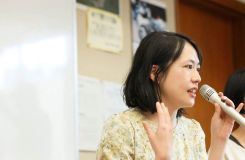 NPO法人チャリティーサンタ 理事河津 泉
NPO法人チャリティーサンタ 理事河津 泉河津 泉の記事を見る
-
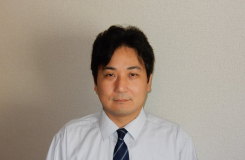 金沢大学人間社会学域地域創造学類・准教授 、特定非営利活動法人国土利用再編研究所・理事長林 直樹
金沢大学人間社会学域地域創造学類・准教授 、特定非営利活動法人国土利用再編研究所・理事長林 直樹林 直樹の記事を見る
-
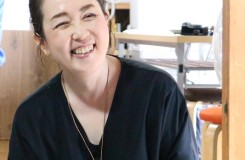 認定NPO法人ペアレント・サポートすてっぷ理事長安藤希代子
認定NPO法人ペアレント・サポートすてっぷ理事長安藤希代子安藤希代子の記事を見る
-
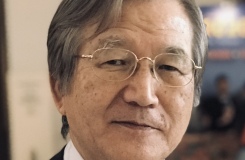 カリフォルニア大学サンフランシスコ校小児胸部心臓外科教授佐野俊二
カリフォルニア大学サンフランシスコ校小児胸部心臓外科教授佐野俊二佐野俊二の記事を見る
-
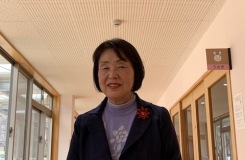 社会福祉法人 旭川荘 ひらたえがお保育園 園長江田 加代子
社会福祉法人 旭川荘 ひらたえがお保育園 園長江田 加代子江田 加代子の記事を見る
-
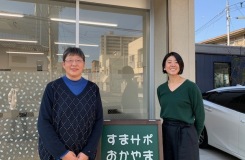 NPO法人 おかやまUFE 副理事長 ・NPO法人 おかやまUFE 事務局阪井 ひとみ・永松千恵
NPO法人 おかやまUFE 副理事長 ・NPO法人 おかやまUFE 事務局阪井 ひとみ・永松千恵阪井 ひとみ・永松千恵 の記事を見る
-
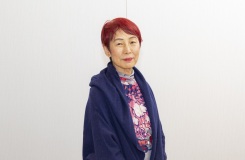 社会学者 東京大学名誉教授 認定NPO法人ウィメンズアクションネットワーク(WAN)理事長 上野 千鶴子
社会学者 東京大学名誉教授 認定NPO法人ウィメンズアクションネットワーク(WAN)理事長 上野 千鶴子上野 千鶴子 の記事を見る
-
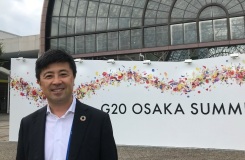 外務省 国際保健政策室長 鷲見 学
外務省 国際保健政策室長 鷲見 学鷲見 学の記事を見る
-
 プロ・アダプティブ・サーファー藤原(旧姓:川上)智貴
プロ・アダプティブ・サーファー藤原(旧姓:川上)智貴藤原(旧姓:川上)智貴の記事を見る
-
 京都大学霊長類研究所 教授正高信男
京都大学霊長類研究所 教授正高信男正高信男の記事を見る
-
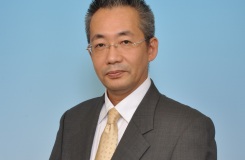 社会医療法人石川記念会HITO病院緩和ケア内科統括部長大坂巌
社会医療法人石川記念会HITO病院緩和ケア内科統括部長大坂巌大坂巌の記事を見る
-
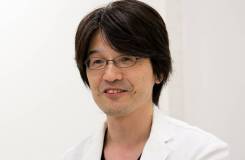 東京医療学院大学保健医療学部教授上田 諭
東京医療学院大学保健医療学部教授上田 諭上田 諭の記事を見る
-
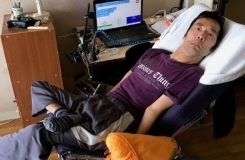 「夢を叶える145」ライター宮村孝博
「夢を叶える145」ライター宮村孝博宮村孝博の記事を見る
-
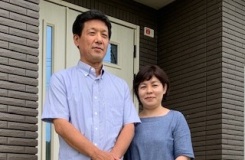 NPO法人 Anneの家 代表 美作地区里親会会員松本芳也・淳子夫妻
NPO法人 Anneの家 代表 美作地区里親会会員松本芳也・淳子夫妻松本芳也・淳子夫妻の記事を見る
-
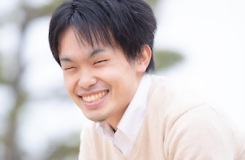 特定非営利活動法人あかね 代表理事中山 遼
特定非営利活動法人あかね 代表理事中山 遼中山 遼の記事を見る
-
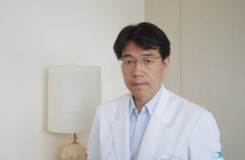 大阪市立総合医療センター 緩和医療科部長 兼 緩和ケアセンター長 大阪市立大学医学部臨床准教授 一般社団法人「こどものホスピスプロジェクト」常務理事 日本小児科学会専門医 英国カーディフ大学緩和ケア認定医(Certificate in Palliative Care) 日本緩和医療学会暫定多田羅竜平
大阪市立総合医療センター 緩和医療科部長 兼 緩和ケアセンター長 大阪市立大学医学部臨床准教授 一般社団法人「こどものホスピスプロジェクト」常務理事 日本小児科学会専門医 英国カーディフ大学緩和ケア認定医(Certificate in Palliative Care) 日本緩和医療学会暫定多田羅竜平多田羅竜平の記事を見る
-
 NPO法人 岡山マインド「こころ」/代表理事 一般社団法人お互いさま・まびラボ/副代表理事多田伸志
NPO法人 岡山マインド「こころ」/代表理事 一般社団法人お互いさま・まびラボ/副代表理事多田伸志多田伸志の記事を見る
-
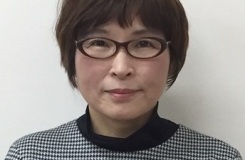 一般社団法人MY TREE代表理事 MY TREEペアレンツ・プログラムスーパーバイザー 認定フェミニストカウンセラー (公認心理師)中川和子
一般社団法人MY TREE代表理事 MY TREEペアレンツ・プログラムスーパーバイザー 認定フェミニストカウンセラー (公認心理師)中川和子中川和子の記事を見る
-
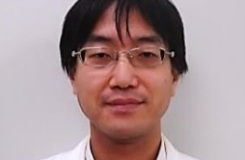 兵庫県立ひょうごこころの医療センター精神科医師小田 陽彦
兵庫県立ひょうごこころの医療センター精神科医師小田 陽彦小田 陽彦の記事を見る
-
 独立行政法人国立病院機構福山医療センター院長岩垣博己・堀井城一朗・矢野 平
独立行政法人国立病院機構福山医療センター院長岩垣博己・堀井城一朗・矢野 平岩垣博己・堀井城一朗・矢野 平の記事を見る
-
 岡山大学 教授 文学部長田中 共子
岡山大学 教授 文学部長田中 共子田中 共子の記事を見る
-
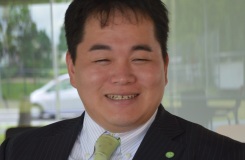 Civil Engineer (仕組みつくりの技術者)石田篤史
Civil Engineer (仕組みつくりの技術者)石田篤史石田篤史の記事を見る
-
 一般財団法人キヤノングローバル戦略研究所 研究主幹・経済学博士松山幸弘
一般財団法人キヤノングローバル戦略研究所 研究主幹・経済学博士松山幸弘松山幸弘の記事を見る
-
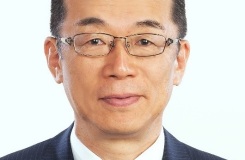 岡山大学生殖補助医療技術教育研究センター ART教育研究部門長・教授舟橋 弘晃
岡山大学生殖補助医療技術教育研究センター ART教育研究部門長・教授舟橋 弘晃舟橋 弘晃の記事を見る
-
 医療法人サンズ理事長浅野 直
医療法人サンズ理事長浅野 直浅野 直の記事を見る
-
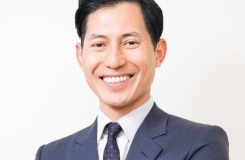 株式会社ヘリオス 代表執行役社長CEO鍵本忠尚
株式会社ヘリオス 代表執行役社長CEO鍵本忠尚鍵本忠尚の記事を見る
-
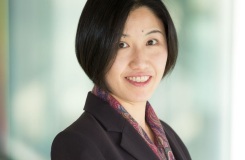 慶應義塾大学文学部人間科学専攻教授(医療人類学) McGill大学人類学部・医療社会研究学部Ph.D.北中淳子
慶應義塾大学文学部人間科学専攻教授(医療人類学) McGill大学人類学部・医療社会研究学部Ph.D.北中淳子北中淳子の記事を見る
-
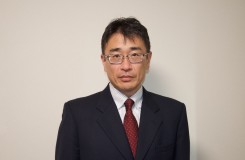 岡山大学病院 緩和支持医療科片山英樹
岡山大学病院 緩和支持医療科片山英樹片山英樹の記事を見る
-
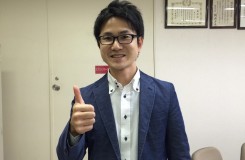 岡山市役所 保健福祉企画総務課松岡克朗
岡山市役所 保健福祉企画総務課松岡克朗松岡克朗の記事を見る
-
 近現代史研究家青木康嘉
近現代史研究家青木康嘉青木康嘉の記事を見る
-
 独立行政法人国立病院機構福山医療センター院長岩垣博己・長谷川利路・中島正勝
独立行政法人国立病院機構福山医療センター院長岩垣博己・長谷川利路・中島正勝岩垣博己・長谷川利路・中島正勝の記事を見る
-
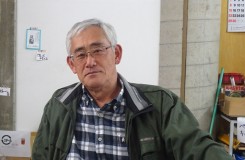 岡山高等学院 副校長 水野文一郎
岡山高等学院 副校長 水野文一郎水野文一郎の記事を見る
-
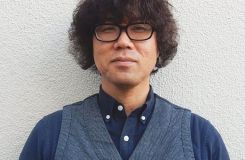 社会の仕組み屋、社会の編集者石原 達也
社会の仕組み屋、社会の編集者石原 達也石原 達也の記事を見る
-
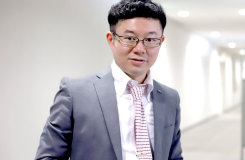 一般社団法人SGSG理事長/中国学園大学子ども学部講師野村泰介
一般社団法人SGSG理事長/中国学園大学子ども学部講師野村泰介野村泰介の記事を見る
-
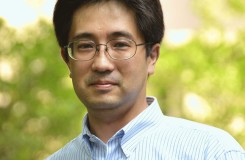 一橋大学経済研究所 教授神林 龍
一橋大学経済研究所 教授神林 龍神林 龍の記事を見る
-
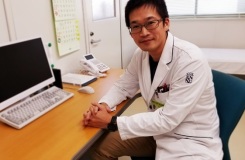 特定医療法人自由会 理事 (社会福祉法人敬友会 理事、公益財団法人橋本財団 理事)橋本 健二
特定医療法人自由会 理事 (社会福祉法人敬友会 理事、公益財団法人橋本財団 理事)橋本 健二橋本 健二の記事を見る
-
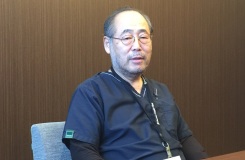 医療法人社団 岡山二人クリニック 理事長、医学博士林 伸旨
医療法人社団 岡山二人クリニック 理事長、医学博士林 伸旨林 伸旨の記事を見る
-
 フリーライター渡辺嗣郎(わたなべ しろう)
フリーライター渡辺嗣郎(わたなべ しろう)渡辺嗣郎(わたなべ しろう)の記事を見る
-
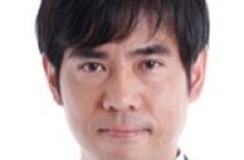 国立大学法人岡山大学 副理事(国際担当)横井 篤文
国立大学法人岡山大学 副理事(国際担当)横井 篤文横井 篤文の記事を見る
-
 ペンネームドクターX
ペンネームドクターXドクターXの記事を見る
-
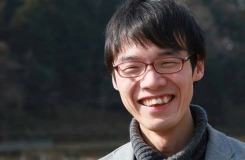 NPO法人 山村エンタープライズ 代表理事藤井裕也
NPO法人 山村エンタープライズ 代表理事藤井裕也藤井裕也の記事を見る
-
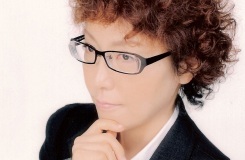 キャンサー・ソリューションズ株式会社 代表取締役社長桜井 なおみ
キャンサー・ソリューションズ株式会社 代表取締役社長桜井 なおみ桜井 なおみの記事を見る
-
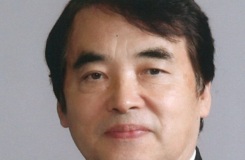 AMDA(アムダ) グループ代表・認定非営利活動法人AMDA 理事長菅波 茂
AMDA(アムダ) グループ代表・認定非営利活動法人AMDA 理事長菅波 茂菅波 茂の記事を見る
-
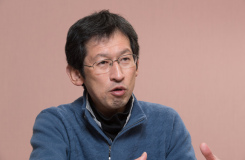 ふれあい歯科ごとう代表五島 朋幸
ふれあい歯科ごとう代表五島 朋幸五島 朋幸の記事を見る
-
 介護従事者髙田 浩一
介護従事者髙田 浩一髙田 浩一の記事を見る
-
 ケアマネ-ジャー・社会福祉士かえる ちから
ケアマネ-ジャー・社会福祉士かえる ちからかえる ちからの記事を見る
-
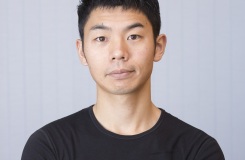 五常・アンド・カンパニー株式会社 代表取締役社長慎 泰俊
五常・アンド・カンパニー株式会社 代表取締役社長慎 泰俊慎 泰俊の記事を見る
-
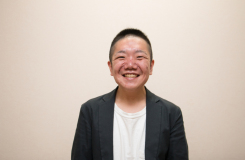 NPO法人 ポケットサポート代表理事三好 祐也
NPO法人 ポケットサポート代表理事三好 祐也三好 祐也の記事を見る
-
 医療法人 寺田病院 院長板野 聡
医療法人 寺田病院 院長板野 聡板野 聡の記事を見る
-
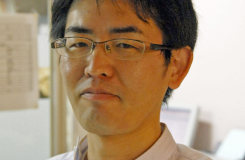 鳥取市立病院 地域医療総合支援センター 生活支援室 副室長、リハビリテーション部 副部長、歯科 医長目黒 道生
鳥取市立病院 地域医療総合支援センター 生活支援室 副室長、リハビリテーション部 副部長、歯科 医長目黒 道生目黒 道生の記事を見る
-
 鳥取市立病院地域医療総合支援センター長 鳥取市福祉部参与足立 誠司
鳥取市立病院地域医療総合支援センター長 鳥取市福祉部参与足立 誠司足立 誠司の記事を見る
-
 ペンネーム池井戸 高志
ペンネーム池井戸 高志池井戸 高志の記事を見る
-
 ペンネーム池田 出水
ペンネーム池田 出水池田 出水の記事を見る
-
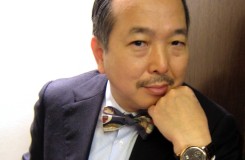 岡山大学大学院ヘルスシステム統合科学研究科教授松岡 順治
岡山大学大学院ヘルスシステム統合科学研究科教授松岡 順治松岡 順治の記事を見る
-
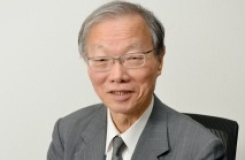 鳥取市立病院 名誉院長田中 紀章
鳥取市立病院 名誉院長田中 紀章田中 紀章の記事を見る
-
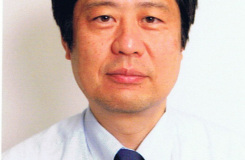 岡山大学大学院保健学研究科 副研究科長 教授齋藤 信也
岡山大学大学院保健学研究科 副研究科長 教授齋藤 信也齋藤 信也の記事を見る
-
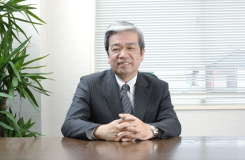 公益財団法人橋本財団 理事長、医学博士橋本 俊明
公益財団法人橋本財団 理事長、医学博士橋本 俊明橋本 俊明の記事を見る

